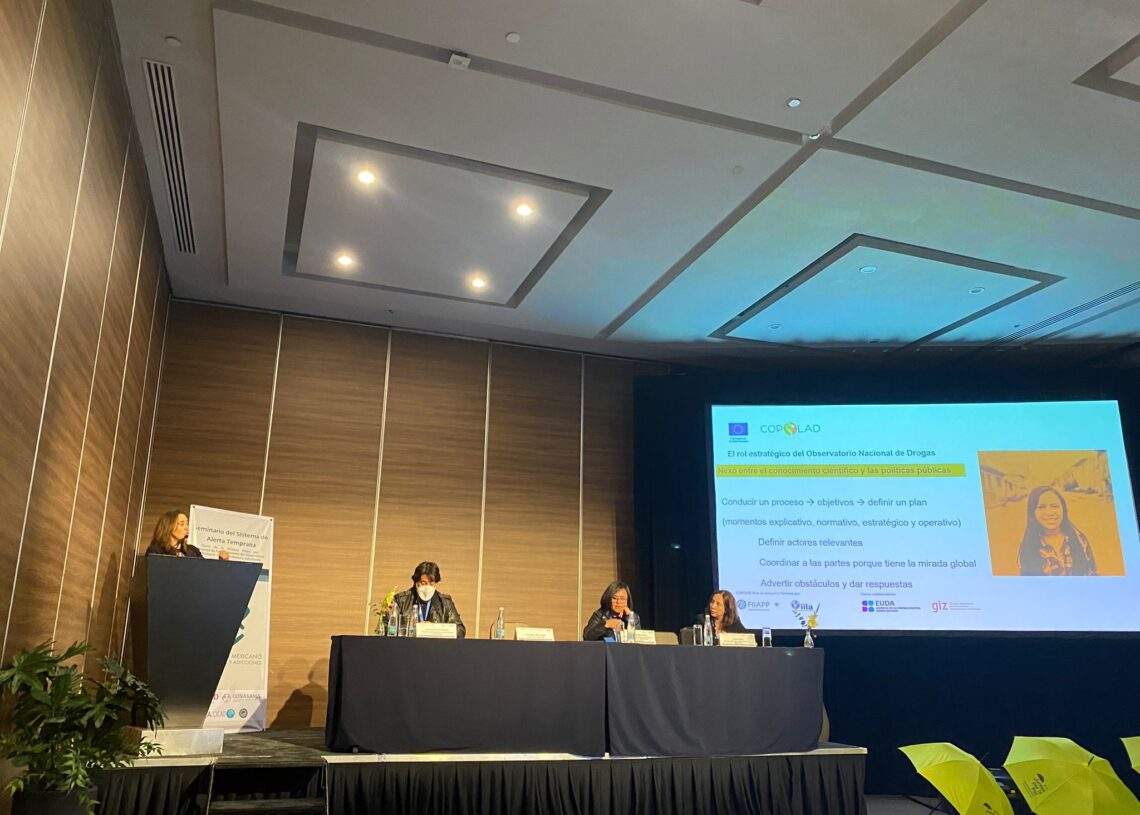On Thursday 25 July 2024, the National Agenda of Research Priorities in Mental Health and Addictions was launched, developed with the support of the COPOLAD III Programme in the line of Strengthening National Drug Observatories in LAC. It was released in the framework of the Early Warning Seminar in Mexico, organised by CICAD-OAS and the National Commission of Mental Health and Addictions of Mexico.
The COPOLAD III Programme, with European funds, supports the promotion of research agendas in various countries in the region. In the case of Mexico, it included training for the coordination and professionals of the Observatory and the follow-up of each of the products (mapping, network assembly, scientific advisory committee and national agenda). It also financially supported the hiring of a local professional who has accompanied the development of the activities.
This work is an important part of the area of work on Observatories promoted by the programme through the Working Group on Strategic Support for the Strengthening of National Systems and Regional Networks of Scientific Research on Drugs. It also includes resource mapping for the generation of research networks and the development of scientific committees for the improvement of evidence on drugs.
The agenda was developed thanks to a collaborative framework between the National Commission on Mental Health and Addictions (CONASAMA), the National Council of Humanities, Sciences and Technologies (CONAHCYT) and the Programme for Cooperation between Latin America, the Caribbean and the European Union on Drug Policy (COPOLAD III).
The definition and elaboration of a National Research Agenda expresses a process of dialogue between different academic institutions, civil society dedicated to drug research and the National Observatory on the various problems associated with drugs, such as problematic drug use, vulnerability due to stigma or social exclusion. Violences, which affect the integral health of people in the country, emphasising the need for knowledge to guide specific policies on different populations. It implies a strategic reflective exercise on research priorities that guarantees the allocation of financial and human resources and orients the training of researchers to produce knowledge that is scientific evidence for the design and evaluation of policies.






